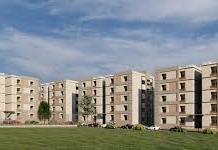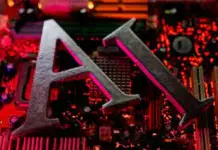Since the creation of Pakistan, civil-military relations have been in turmoil. The musical chairs between the generals and civilians, and the on and off cycle of democracy and martial law are the highlight of our political history.
The military is the talk of the town now a days. So let’s address the elephant in the room. Currently, in the parliament, all of the parties have once called out the military in one way or another. Ever since Gen. Musharaf retired from Presidency, there has been no intervention in the parliament by the military. The PPP, PML-N, PTI and now again PML-N, all took their turns without any military coup. Although there were tempting opportunities for the military to impose martial law, (that were ironically given by the civilian parties like PTI) military refrained from intervening and minded its own business.
Civilians are very loud and mouthy while talking to each other, but there has always been an awkwardness between military and civilians since Musharraf left. They rarely communicate with each other. Their interaction is always formal. Rather than shaking hands at national events, both seem to maintain a social distance from each other.
Despite having sharp differences from the military in the past, all parties claim to be admirers of military forces today.
The PTI had major issues with the policy of General Musharraf. From being a part of the infamous war on terror, then to allow the drone attacks, including the alleged handover of Dr. Aafia Siddiqui, Imran was very vocal about all the disagreements he had with Musharraf and he raised his concerns on every major platform without any hesitation.
When he was a part of the opposition against the sitting government of Nawaz Sharif, he accused PML-N of being anti-army several times. This criticism became a major part of his narrative when the infamous Dawn leaks happened and labelled the party as pro-India.
He was constantly reaffirming that the “Umpire” was neutral. The improved civil-military relations were being viewed as a benchmark in the history of Pakistani politics. But then, things took a turn. When the opposition vowed to bring a no-confidence motion, khan was confident that they will fail. But when the opposition outnumbered the pro-Imran Khan MNAs in the assembly, there was a change in the discourse of PTI. Imran Khan called out neutrality and said that only an animal can be neutral. It might be a slip of tongue, but critics quickly referred to this statement as a hint toward the military.
Khan clarified multiple times that his words were not intended for Army, but the damage was done. Throughout the no-confidence motion development, there were anti-army sentiments by pro-PTI accounts and supporters on social media. Hashtags against armed forces were being trended by (apparently) the PTI accounts worsened the situation. PTI officials denied the association with such accounts multiple times and dismissed them as a propaganda campaign by PMLN. But the anti-army and anti-Supreme Court slogans by PTI supporters in the rallies are something that PTI cannot shake off. Armed forces have taken notice of the campaign and have arrested some suspects as well.
Meanwhile, the relations between the PML-N and the military are being anticipated. The PML-N, once the favourite of the military (as PML), has now a very bitter history with the military. They rose to power with the help of General Zia ul Haq. But later on, in Musharraf’s era, there was an intense rift between PML-N and the Military. After the tenure of Musharraf, PML-N had better relations with the military but it went downhill during the sit-in of PTI against the government of Nawaz Sharif.
PML-N member and former finance minister alleged that Nawaz Sharif was overthrown because their government did not give an extension to general and then army chief Raheel Sharif.
A senior leader and former prime minister of the party after his dismissal called out Army Chief General Bajwa by name in a video address. The real challenge in this situation is for Shehbaz Sharif. It can be said that Shehbaz Sharif desperately wants to tell ISPR to clarify to the nation the claims regarding the letter gate, but there is an intense tension between his brother and the army chief. It will be very awkward for him to approach the army chief and discuss national security issues with him as if nothing happened in the past.
Army chief Qamar Javed Bajwa was also not present at the oath-taking ceremony of the newly elected Prime minister. Meanwhile, he has invited PTI Chairman Imran Khan to an iftar dinner despite a smear campaign. All differences aside, both civil and military authorities should move on from the past, and cooperate with one another for the betterment of the country. If civilian rivals can form alliances for the “betterment of the country” then why not civilians and militaries?







